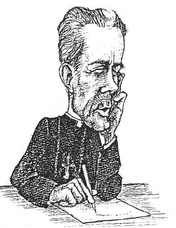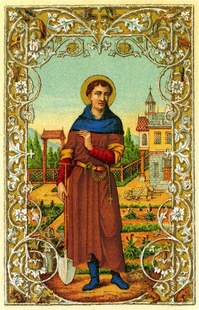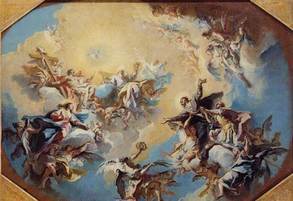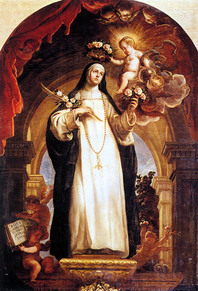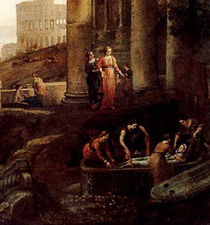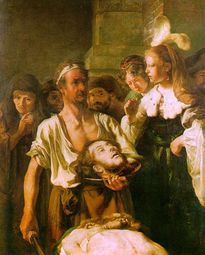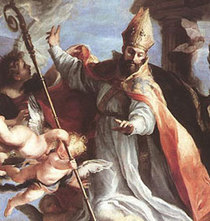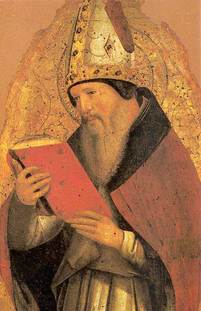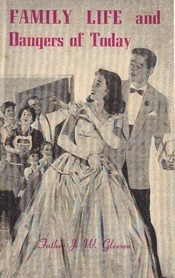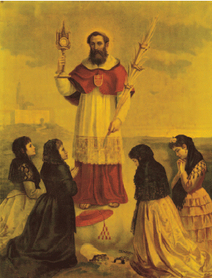
And the most gracious Maiden was not deaf to his prayers. From her he understood that it would please her right well, if he would join the Religious Order which had just been founded at her own inspiration, styled Of Ransom or Of Mercy, for buying up and freeing slaves. As soon as he had received this intimation from her, he went to Barcelona, and entered the Institute so nobly dedicated to love for our neighbour. Once enlisted in the Regular Army, he guarded unspotted for ever the virginity which he had already consecrated to the Blessed Virgin for ever. But he was a bright and shining light of all other good words and works, especially of tender compassion for Christians who were passing a life of grievous bondage in the possession of unbelieving masters. To free such he was sent into Africa, and delivered many. But his money ran short, and as there were still many in imminent danger of denying the faith, he pawned himself. He was enkindled with a most vehement longing for the salvation of souls, and by his exhortations brought divers Mohammedans to Christ. The Moors therefore threw him into close prison, and put him to divers tortures, at last making holes through his lips and locking them together with an iron padlock, which horrid cruelty he long endured
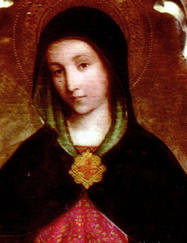 Our Lady of Ransom
Our Lady of Ransom 